Table of Contents
ToggleFinancial Literacy, Charak SAHAB? Are You Foolish — Talking Money to the Nation’s Smartest?
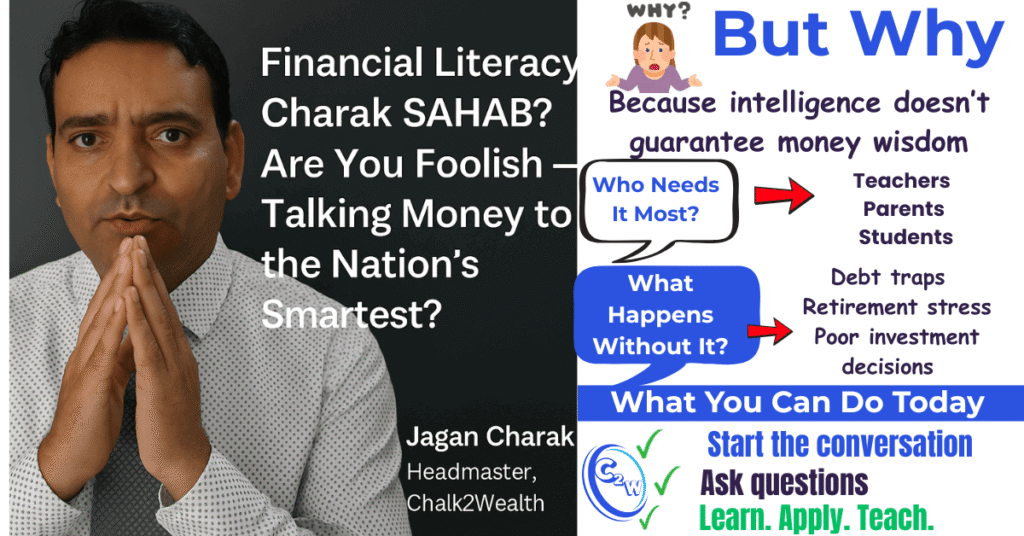
Financial Literacy why I Talk Money with the Nation’s Smartest
“Charak SAHAB, are you mad? Financial literacy? To teachers? You’re talking money to the smartest people in the room?”
I’ve heard this chuckle more than once — a teasing jab, a raised eyebrow, or even a full-blown smirk. As the head of a school, it hits differently. It’s like saying, “Why teach fish to swim?”
But here’s what they don’t understand — intelligence in algebra doesn’t automatically translate to financial wisdom. A flawless Shakespeare recitation won’t save you from a poorly chosen credit card. Or worse, from signing a life insurance policy you don’t understand, or relying entirely on GPF to secure your retirement.
Bad debt is easy to enter — but who shows you the exit?
That’s why I write, speak, and repeat. In [Insurance Frauds in India: Banks Earned ₹21,773 Cr from Our Regret — Are You the Next Victim?], I broke down how even educated professionals are trapped by smooth-talking agents and half-truths. In [Good Life Insurance in India: 5 Rules Every Smart Buyer Should Follow], I laid out what every teacher should know before signing the dotted line. And in [Investment Options for Teachers: Why GPF Alone Isn’t Enough for Your Financial Future], I challenge the blind faith we’ve placed in a system that no longer meets modern financial needs.
Because if the teachers — the very people shaping minds — are financially unprepared, what future are we building? And that’s exactly why I speak up, why I teach, and why I won’t stop talking about money — especially with India’s brightest minds.
Let me explain.
Financial Literacy why Being Book-Smart Isn’t Enough for Life
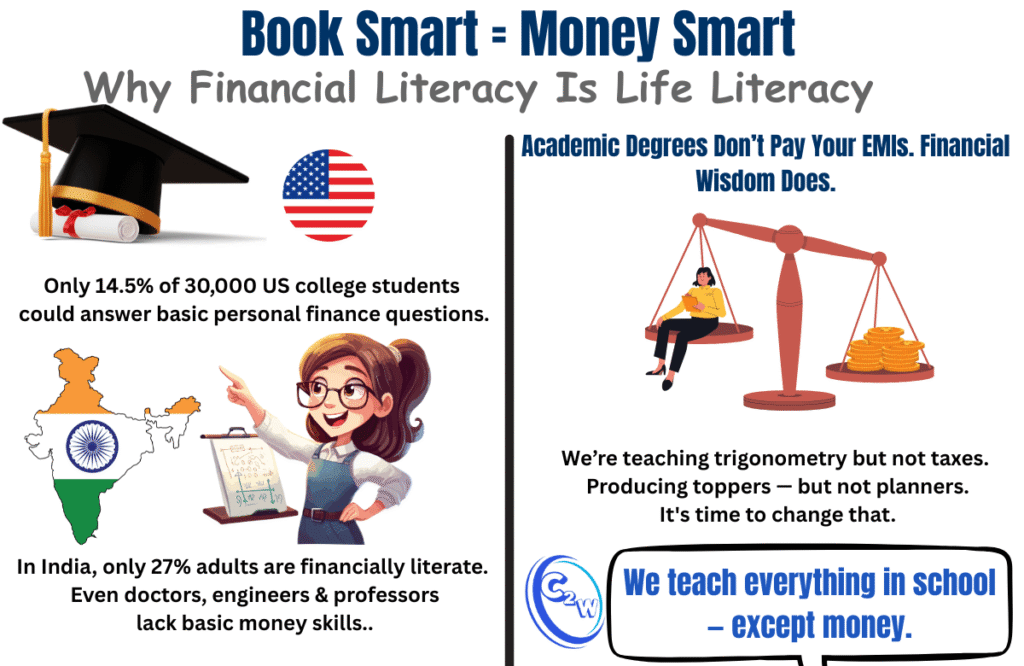
Being a class topper, a gold medalist, or a PhD doesn’t make you money-smart. Let’s bust that myth right now. You know what surprised me? A study of over 30,000 U.S. college students found that only 14.5% could answer all basic personal finance questions. Even people working at the U.S. Federal Reserve — yes, the very people who set financial policy — struggled with the same quiz.
If economics majors and finance professionals can fumble over simple financial concepts… where does that leave the rest of us?
Back home in India, the story gets scarier:
Only about 27% of Indian adults are considered financially literate.(Dristi IAS )
That means that on an average 3 out of 4 adults — many of them highly educated — have no idea how interest, insurance, or inflation really work. Engineers, doctors, professors… we’re churning them out by the lakh. But if they don’t know how to manage a home loan or build a safety fund, are we truly preparing them for life?
Life Doesn’t Ask for Your Marksheet — It Asks for Your Money Wisdom
You can ace board exams, win medals, and still find yourself confused at the grocery store when comparing prices. You can solve calculus problems and still get trapped in a credit card debt spiral.
I’ve seen it happen. I’ve had students come back years later, brilliant minds, now struggling with EMIs and impulsive investments. I once met a math teacher — yes, a math teacher — who didn’t realize how compound interest was quietly draining her via a loan.
Financial mistakes don’t discriminate. They haunt the unaware.
👉 People who lack basic financial literacy often:
- Overspend and get caught in debt traps
- Live paycheck to paycheck without an emergency cushion
- Skip retirement planning
- Fall prey to scams and fine-print frauds
And remember the COVID storm?
Those who understood emergency funds, budgeting, and debt management had a safety raft. The rest? They drowned in uncertainty
Why Don’t We Teach It in Schools?
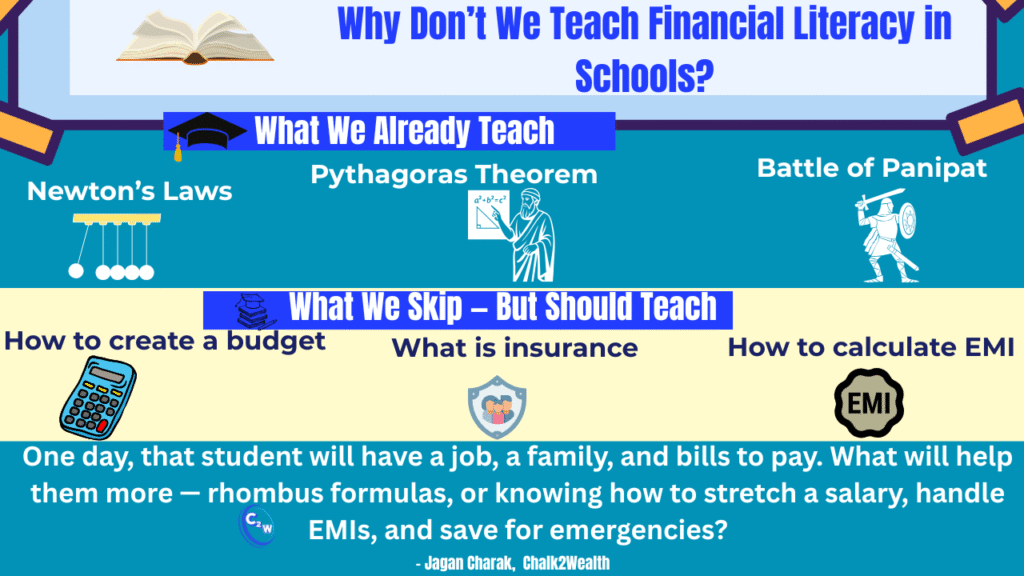
We teach Newton’s Laws, the Battle of Panipat, and Pythagoras’ Theorem — all valuable lessons. But we skip over the basics of real life: how to budget, what insurance actually does, and how compound interest can make or break your future.
What’s more useful to a student — finding the area of a rhombus or figuring out how to calculate their EMI?
This isn’t just about updating textbooks. It’s about giving students the tools to survive and thrive.
Thankfully, the shift has started.
- The National Education Policy (NEP 2020) officially includes financial literacy in its vision. (Times of India)
- Mumbai schools are teaching students in Classes 6–9 how to budget and understand investments. (Empower article)
- The Mumbai administration has backed this with ₹12 crore to roll out financial literacy programs. (Hindustan Times)
The message is clear: financial education isn’t extra. It’s essential.
Weave It In, Don’t Bolt It On
Financial literacy shouldn’t be a one-day workshop or a guest lecture. It needs to be stitched into everyday teaching.
For example:
- In math class? Teach compound interest using SIPs.
- In social studies? Link inflation to everyday living costs.
- In language class? Discuss a character’s poverty with empathy — and real-life financial solutions.
Some schools even run mock “market days,” stock trading games, or savings challenges — and guess what? Kids love it. It’s real, it’s relevant, and it’s fun.When we make money less mysterious and more accessible, children don’t fear it — they master it.
A Crisis in Silence: Why Chalk2Wealth Exists
India is facing a deepening financial literacy crisis — and our educators are among the most affected.
- According to an ET Edge Insights report (Dec 12, 2024), only 27% of Indians are financially literate, leaving a staggering 73% financially unaware — with an even wider gap between rural and urban populations.
- A July 2025 report by TaxGuru echoes the same — calling for urgent, foundational financial education across the country.
But here’s the most painful part —👉 The system is failing the very people it should protect.
- A July 2025 Outlook Money investigation exposed that banks earned ₹1,773 crore in commissions in FY24 by aggressively pushing financial products like insurance and mutual funds — many of which collapsed prematurely or never served their real purpose.
Who were the most exploited? Teachers, clerical staff, and school support workers — people who trust the system, not question it.
And it gets worse.
- On July 18, 2025, India Today called ULIPs “India’s most mis-sold financial product”, commonly pushed without clear disclosure of charges, risks, or lock-in clauses
Why Chalk2Wealth Stands Firm
Our teachers retire with respect — but not with wealth. Despite decades of service, many educators still rely solely on GPF and blind trust.
- No clarity on SIPs.
- No awareness about term insurance.
- No habit of building emergency funds.
- No idea about inflation silently eroding savings.
At Chalk2Wealth, we believe that personal finance must be made simple, honest, and empowering — especially for teachers, families, and students.
So that every teacher can retire with:
✅ Clarity, not confusion
✅ Confidence, not fear
✅ Peace, not paperwork
It Takes a Village: Teachers, Parents, Students
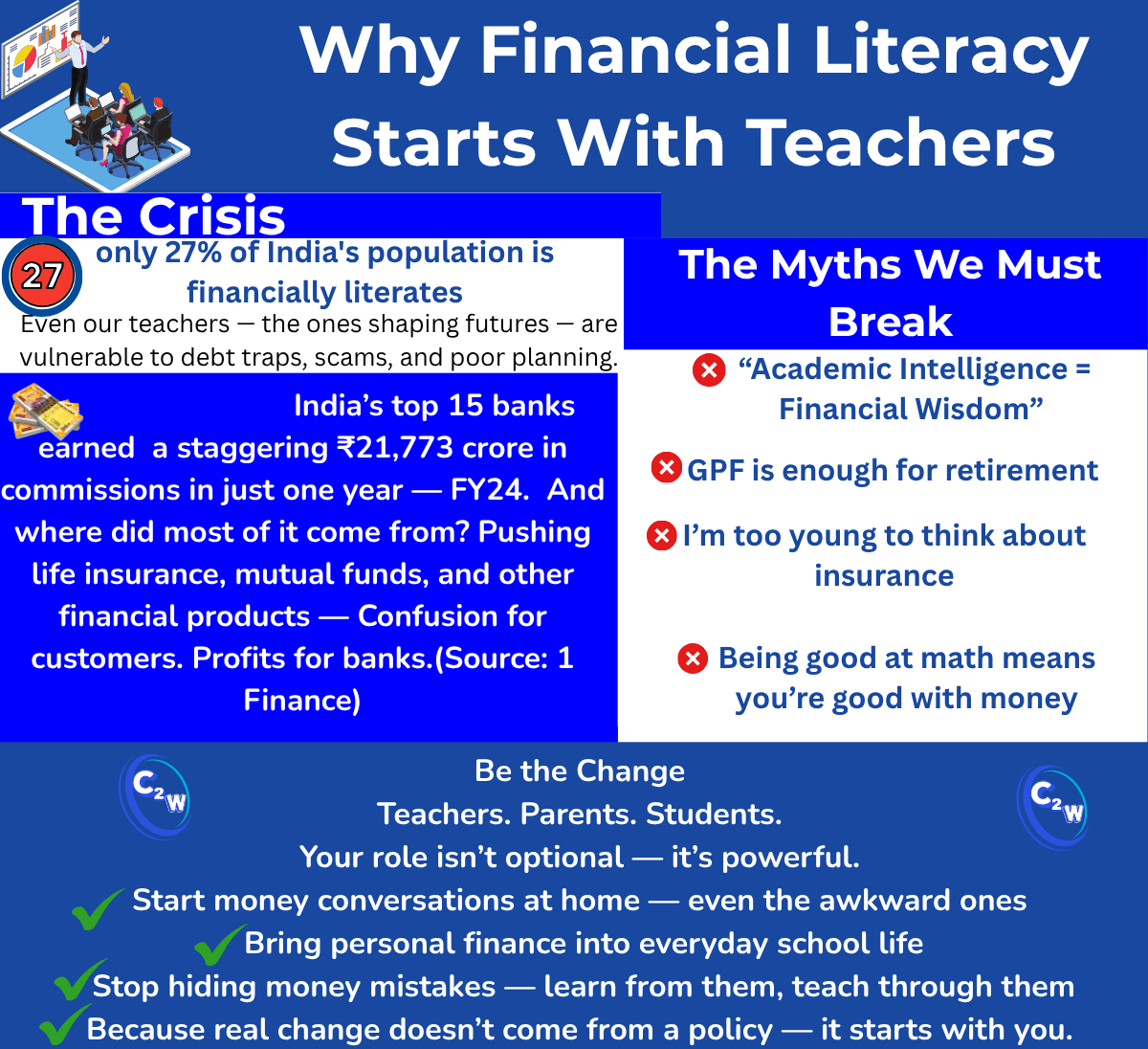
Teachers — You don’t need to be a finance expert to drop in a money lesson. A budget example in math, a saving story in English, a discussion in economics — every subject has space for money.
Parents — You are your child’s first money mentor. Talk openly. Let them watch, ask, and even participate. Whether it’s comparing prices or planning a picnic budget — they’re learning.
Students — Don’t wait for adulthood to understand money. This is your superpower. Use it wisely. Learn now, and your future will thank you.
So Am I Foolish for Talking Money?
Some people still smirk when I talk about teaching money to the nation’s smartest.
To them, I say:
“Teaching money to the smart isn’t foolish — it’s how we raise a truly wise generation.”
Because being academically intelligent is one thing. But being financially wise? That’s the edge that truly changes lives.
Let’s make personal finance conversations normal — in classrooms, in homes, in school corridors, and in casual staffroom chats.
A Personal Appeal — From Me to You
I amj Jagan Charak — a teacher, a headmaster, and the founder of Chalk2Wealth — and I make this humble request to you:
- If you’re a teacher — be the one to start.
- If you’re a parent — take the first step.
- If you’re a student — ask the questions.
Let’s spread the kind of knowledge that truly transforms lives. Financial literacy isn’t just another subject. It’s the foundation beneath them all.
I don’t know how far this journey will take me, but I’ve made a promise to myself — I will keep going.
And today, with folded hands,
I ask you to walk with me — to spread awareness, to spark conversations, and to build a financially confident India — together.
Let’s Begin, Together
- Start small. Talk money at home.
- Bring it into your classrooms.
- Share this message with just one more teacher, parent, or student.
Because awareness grows one conversation at a time.

Let’s raise a generation that’s not just educated — but financially empowered.
Ready to take the first step?
Follow us. Share this post. Start the dialogue on WhatsApp at – 9816480765
Because financial literacy isn’t optional anymore — it’s essential.
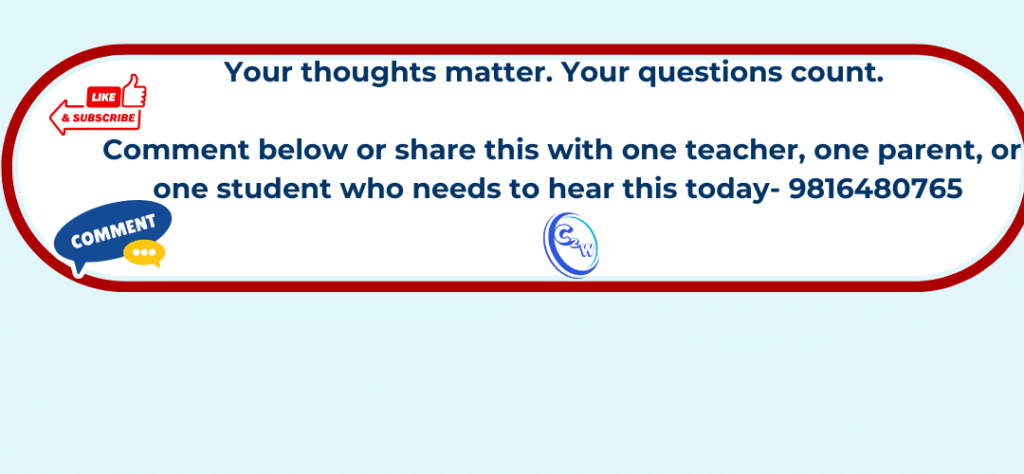

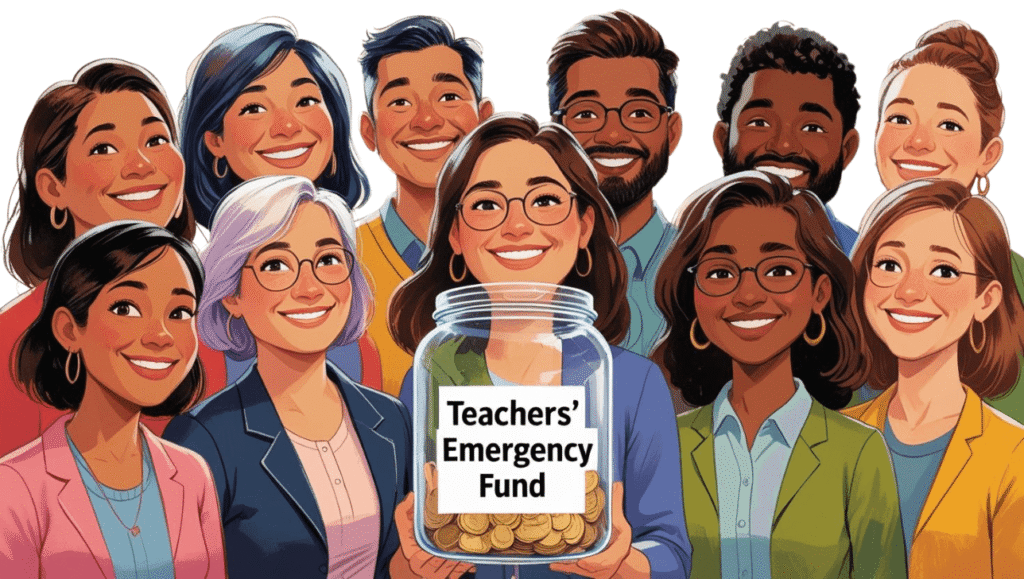
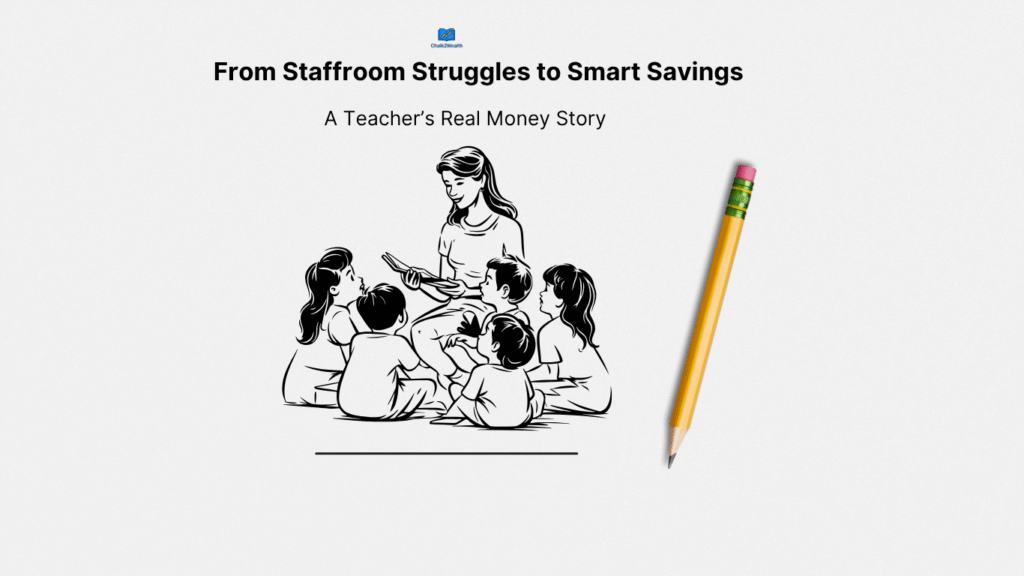
Wonderful thought.
Thank you so much, Surjeet ji! 🙏
Coming from you, that means a lot. Financial literacy isn’t just a subject — it’s a survival skill. And if we, the educators, don’t talk about it openly, who will?
Let’s keep the conversation going — for our teachers, our students, and our families.
#FinancialLiteracy #Chalk2Wealth #EmpowerEducators